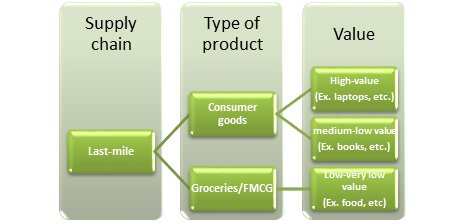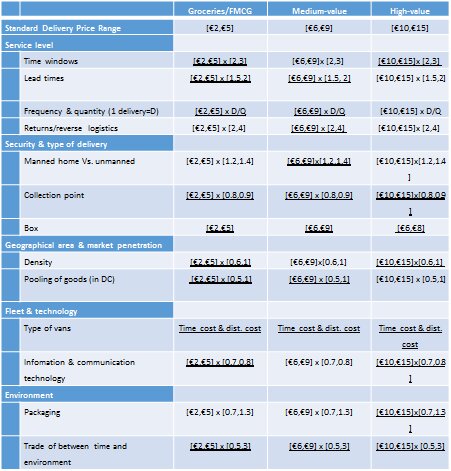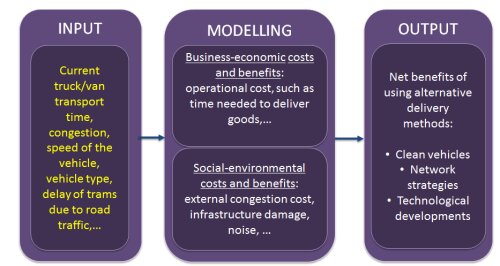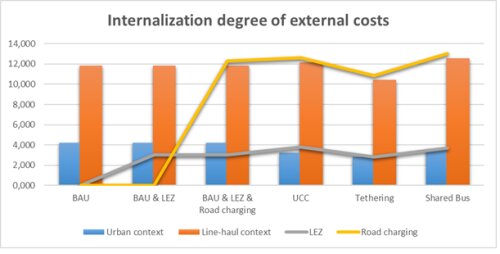The last mile segment is by far the most dynamic one of a total logistics chain, from both a market perspective and a process perspective. The research concerning last mile logistics started with the analysis of the B2C / direct–to–consumer market and with the development of the last mile typology, based on desk research.

Further on, an analysis was elaborated concerning the perceived cost effects of the last mile characteristics. The following areas were found to offer opportunities for optimising last mile efficiency and reducing cost: consumer service level, security and delivery type, the geographical region and market penetration or density, the vehicle fleet and technology, and the environment. For each of these areas, two to four proxy variables were specified. The relevance of each of the proxy variables to each of the three subflows varied. Clearly, though, the determining factor for their applicability was the value of the goods concerned.

Finally, a simulation cost model/function was developed, so as to simulate the cost effects caused by changes in last mile characteristics or by policy measures taken.


Applications made to date:
E-commerce last-mile in Belgium : developing an external cost delivery index
The e-commerce parcel delivery market and the implications of home B2C deliveries vs pick-up points
Ho.Re.Ca. : logistics and medieval structured cities : a market analysis and typology